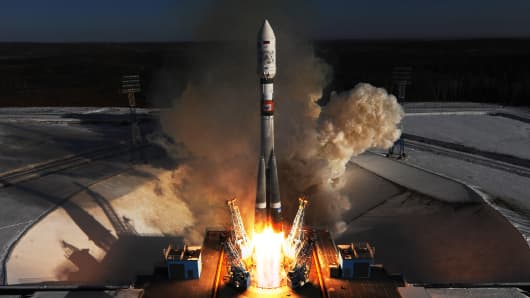Russia and China could soon possess "destructive" space weapons that could be used against the U.S., according to American intelligence agencies.
The two United Nations Security Council members are pursuing such "anti-satellite weapons as a means to reduce U.S. and allied military effectiveness,"
Within the next few years, Moscow and Beijing could possess "destructive" weapons for use in a potential space conflict, U.S intelligence agencies warned in a report on Tuesday.
The two United Nations Security Council members are pursuing "anti-satellite weapons as a means to reduce U.S. and allied military effectiveness," the report said, reflecting input from organizations including the FBI, the CIA, and the National Security Agency.

A Soyuz 2.1a rocket booster launches from Russia's Vostochny Cosmodrome. The Soyuz 2.1.a was set to deliver Russian Kanopus-V No3 and No4 remote sensing satellites and 9 small satellites to orbit.
Anti-satellite weapons, which include ballistic missiles, are designed to damage space-based systems. They are a major element of what is known as counterspace technology, or hardware and software that aim to hinder adversaries in outer space.
"We assess that, if a future conflict were to occur involving Russia or China, either country would justify attacks against U.S. and allied satellites as necessary to offset any perceived U.S. military advantage derived from military, civil, or commercial space systems," the report said.
"Of particular concern, Russia and China continue to launch 'experimental' satellites that conduct sophisticated on-orbit activities, at least some of which are intended to advance counterspace capabilities," it continued.
Russian President Vladimir Putin and Chinese President Xi Jinping both have a shaky relationship with the world's largest economy.
President Donald Trump's administration has criticized Moscow for dangerous military activities, but the White House has yet to impose long-awaited sanctions on Putin's government. Several of Trump's former aides are under investigation for alleged collaboration with the Kremlin, and a special counsel is investigating whether the Trump campaign colluded with Russia during his presidential run.
Beijing's trade and currency practices, meanwhile, remain one of Trump's major complaints.

No comments:
Post a Comment